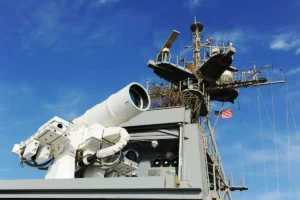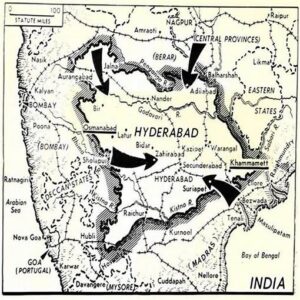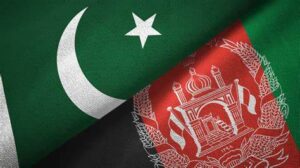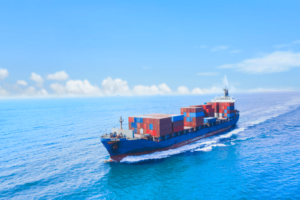This article argues that European Union must assure its delicate balance between the diplomacy and growing Human Right concerns after the recent escalation between Israel and Palestine due to Hamas attack on Israel. First this study explains that multifaced approach of EEAS through diplomacy with Israel and then it explains the EEAS approach towards the Human right violations in Palestinian territories by explaining the EU’s contribution in humanitarian aid and infrastructure building and supporting vulnerable population. This study further critically analyses the alleged EU’s biasness towards Israel while avoiding the grave human right violations and also provides some practical recommendations which would enhance EU’s credibility as a true advocate of peace and Human rights law.
EU Diplomacy in Conflict
The European External Action Service (EEAS) of European Union (EU) takes a diplomatic stance, engages to provide humanitarian aid, and promotes long-term political solutions in the Israel-Palestine conflict. In a diplomatic capacity, the EEAS takes part in international forums working to uphold a cohesive European a position on the matter and resolving concerns regarding apparent inequalities in its approach to the matter. A major component is humanitarian intervention, with the EEAS supporting truces and ceasefires to improve the difficult circumstances that civilians face. It also emphasizes its adherence to international humanitarian law and denounces actions that conflict with these principles. The EEAS advocates for a two-state solution and proposes establishing an interim Palestinian authority under UN authority in order to address the underlying causes of the conflict. It acknowledges that Arab states can make significant contributions to peacekeeping operations that go beyond giving money. This comprehensive strategy is a reflection of the EEAS’s dedication to providing prompt assistance, maintaining stability, and laying the groundwork for long-term peace in the area. A threefold increase in aid to Gaza points out the EEAS’s role in providing humanitarian relief and shows a concrete response to the population’s pressing requirements. Overall, the EEAS’s engagement in the Israel-Palestine conflict reflects a multifaceted approach of EU aimed at addressing immediate crises while advocating for long-term solutions in a diplomatic manner.
EU approach to Human Rights violations in the Conflict
EEAS always tries to take a middle ground between here by clearly separating the terrorist groups like Hamas and the ordinary Palestinians and advocates that Hamas does not represent the ordinary Palestinians living In Gaza or West Bank, so, civilians must not be punished for the actions committed by the terrorist organizations towards Israel and clearly says that Israel has every right to defend itself against the terrorism. They also criticize the military actions of Israel which are causing the serious violations of Human Rights in both West Bank and especially Gaza, from where Hamas operates mostly. This is what the HR\VP Josep Borrell reaffirmed during his most recent visit of Middle East after the most recent escalation between Hamas and Israel.
EEAS on the behalf of the EU has actively contributed to the Humanitarian aid and donation for the vulnerable communities, infrastructure building both the West bank and Gaza. The European Union (EU) is the biggest external actor supporting vulnerable population in Palestine through significant humanitarian aid. Allocating €1.177 billion for the period 2021-2024 under the Neighborhood and Development Cooperation Instrument, the EU showcases a steadfast commitment. In 2022, the direct financial support via the PEGASE instrument amounted to €145.35 million, covering critical areas like salaries, health services, and assistance for vulnerable households. An extra €20 million was released to address pandemic-related challenges. The EU’s substantial contributions to UNRWA in 2022 reached €97 million, emphasizing its vital role in supporting Palestine refugees and ensuring access to essential services. They are still more concerned that this aid must be spent for the right cause and must not go to any NGO or any entity which supports the actions against Israel from Jihadists. So, they are actively but carefully contributing for humanitarian aid in Palestine.
In the most recent violence, the EEAS has consistently issued statements condemning loss of innocent lives in Gaza and the West Bank. The EEAS expressed deep concern about the escalation of violence in statements issued on August 7, 10, 12, and 15, 2023, calling for immediate ceasefires and emphasizing the importance of adhering to international humanitarian law. While the EEAS’s condemnation is consistent with its commitment to peace and stability, some observers believe that more proactive diplomatic measures are required to address the complex Israel-Palestine conflict. The EU’s influence and economic leverage could be used to facilitate meaningful dialogue and progress towards a long-term solution, sparking debate about the efficacy of the current approach.
Critical analysis of EU’s Balancing Approach
Although, EEAS on the behalf of EU claims that they have a balancing approach towards Israel Palestine conflict, and they are biggest external contributors to Humanitarian aid for Palestine, but their constructive economic and military cooperation with Israel despite grave Human rights violations in Gaza questions the credibility of European Union as an advocate of International law and Human Rights, and as a champion of European values. According to the report of Stockholm International Peace Research Institute (SIPRI), Italy and Germany have supplied crucial weapons to Israel between 2013 to 2022, which are now being used on ground in Gaza, where extreme human right violations have been committed by Israel over the historic period of time and even in the most recent escalation after Hamas attack, which raises the questions that at one hand, EU is advocating for Human rights but on the other hand, weapons provided by powerful European countries like Germany and Italy are being used in Gaza resulting in the destruction of Hospitals, schools, mosques and deaths of innocent civilians including children and women who have nothing to do with the actions of Hamas being land locked in Gaza and deprived from basic necessities of life including water and electricity.
The trade volume between EU and Israel is currently around $46 billion including the export of military weapons to Israel and around $18 billion of exports from Israel to Europe, which makes Israel the biggest trading partner of Europe. Here again some serious questions are raised towards the credibility of European Union that they are sidelining the human rights violations with the blind eyes ignoring the serious atrocities and the violation of International Humanitarian law and war crimes committed by Israel in Gaza or rather financing these violations with their economic cooperation. This fact is again seriously questioning the EEAS credibility as a mediator or as peace negotiator or an advocate of Human Rights.
When Russia opened the invasion of Ukraine, the trade volume between EU and Russia was around $59 billion but the value of EU imports from Russia dropped from €40.4 billion in the second quarter of 2022 to just €5.7 billion in the second quarter of 2023 representing the 85% decline in import volume and the value of EU exports to Russia also declined from €18.5 billion in March 2022 to €0.4 billion in June 2023 and still there is a wide perception among all European Powers that they must end this trade with Russia because It’s an indirect finance to Russia to commit war crimes in Ukraine. But when it comes to Israel, EU imposed some calculated sanctions over Israel from illegal settlements in West Bank but there are not any practical steps taken by EU for a cease fire or the application of two-state solution or abstaining Israel from committing war crimes in Gaza strip instead there were just calculated and limited oral statements from EEAS that they are concerned about the situation but on the other hand, there is a growing economic cooperation between EU and Israel. So, economic trade with Russia means financing Russia for its actions in Ukraine, then what does the economic cooperation with Israel means when there are serious violations of Human Rights in Palestinian territories?
So, these are some serious questions raised on the credibility of European Union as a peace negotiator and an advocate of Human Rights and two-state solution which must be addressed by EU to practically prove its claims of balanced approach between Israel and Palestine.
Recommendations for a More Balanced Approach
The European Union (EU) must review its trade and economic relations with Israel in order to address the complexities of the Israel-Palestine conflict. This entails linking economic agreements to the human rights situation in Palestinian territories, ensuring that EU cooperation with Israel is conditional on the latter’s commitment to refrain from human rights violations and actions that are considered war crimes and against International law. This strategic alignment demonstrates the EU’s commitment to upholding peace and stability principles. Simultaneously, the EU must take proactive steps to discourage and oppose Israel’s illegal occupation of Palestinian territories, particularly when it comes to the contentious issue of illegal settlements in the West Bank. Advocating for the restoration of the pre-1967 border line between Israel and Palestine is a crucial step, fostering trust among Palestinians in the EU’s role as a reliable broker of peace and human rights. To strengthen its ethical position, the EU should consider imposing arms embargos on European powers selling weapons to Israel, which would highlight the EU’s commitment to avoiding indirect complicity in actions that may result in human rights violations, particularly in the Gaza Strip. By limiting the flow of arms, the EEAS on the behalf of EU can distance itself from potential responsibility for Israel’s actions, aligning its policies with long-standing principles of peace, justice, and international law.
These recommendations are practical while also adhering to the EU’s commitment to functioning as a credible mediator and advocate for human rights in international politics. Implementing these measures would not only strengthen the EU’s credibility but would also demonstrate its commitment to promoting a balanced and impartial approach in the Israel-Palestine conflict, contributing to the broader cause of justice and peace.
Conclusion
This study confirms that the European External Action Service (EEAS) is facing serious challenges in maintaining a delegate balance in its approach between diplomacy and Human Rights concerns in the context of Israel Palestine conflict. Despite actively participating in Humanitarian aid and diplomatic efforts, the perceived biasness in economic cooperation with Israel and lack of practical and solid steps for cease fire, abstaining from Illegal settlements and serious violation of Human rights raises credibility questions. This study calls for a reassessment in trade and economic policies, linking it with the Human rights conditions, asking for practical initiatives against illegal settlements, and imposing arm embargos for selling weapons to Israel. The implementation of these practical measures would be essential for the credibility of the EU to genuinely uphold its commitment for justice, peace, and enforcement of International law, fostering a more impartial approach in current conflict.








